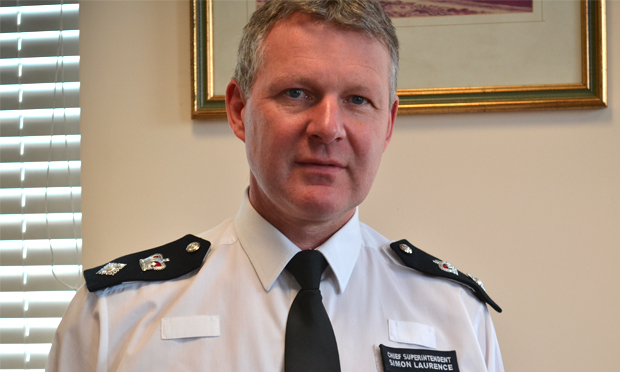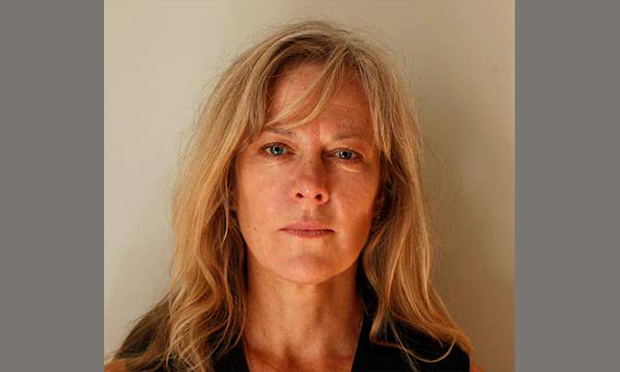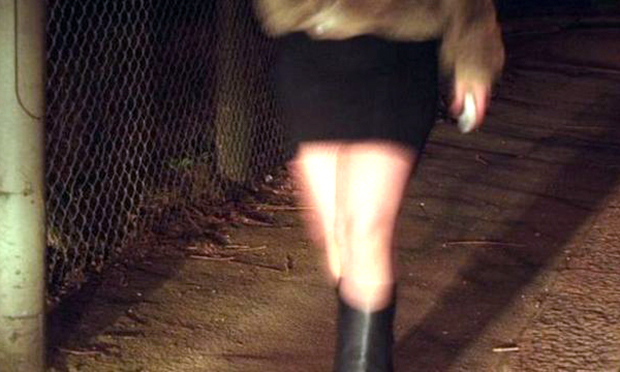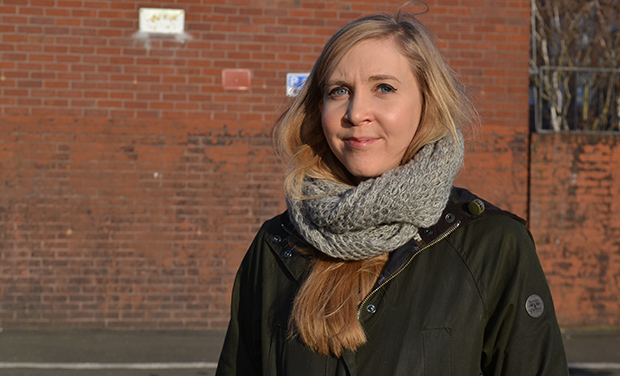Claims of crackdown on prostitutes in Hackney denied by top police officer

“Loitering for the purposes of prostitution – that’s the risk”: Chief Superintendent Simon Laurence.
Hackney’s most senior police officer and the politician in charge of community safety have both refuted claims vulnerable sex workers are being targeted for arrest and other types of enforcement.
Their denials follow months of warnings from specialist support workers who have outlined concerns that national guidance on how to deal with prostitution is being routinely flouted in the borough, causing lives to be put at risk.
The Town Hall has been accused of effectively colluding with the Met and other agencies to drive sex work underground while pimps, drug dealers and organised criminals are overlooked.
Alex Feis-Bryce, who leads National Ugly Mugs, through which sex workers can report crimes and receive warnings about dangerous individuals, this month said Hackney was “probably the area of the country that is acting most in contravention of the national police guidance on sex work”.
He added: “It’s so bad that I actually use it as an example of worst practice.”
But Detective Chief Superintendent Simon Laurence, the Hackney borough commander, said National Ugly Mugs had not expressed this view to him at a recent London-wide summit on the sex trade.
“They didn’t single out Hackney when they had all 32 boroughs together,” he said.
Hackney resident Georgina Perry managed the Open Doors NHS service for the borough’s sex workers for 13 years before quitting last year in disgust at what she alleged were local authority funding cuts to it.
In addition she has cited “punitive” dispersal orders for soliciting, saying the council had provided tacit backing for what she called “a counterproductive and authoritarian approach” by police.

Outspoken: Georgina Perry, formerly of Open Doors
Watchdog Healthwatch Hackney also raised concerns last year about treatment of the borough’s sex workers.
But Chief Superintendent Laurence said that in his two and a half years in Hackney, “I don’t think we have had a prosecution for soliciting or loitering, or probably for curb crawlers”.
He added: “Instead of being prosecuted, they [curb crawlers] are offered to attend a training course, which they pay for, to point out that some of these people [the sex workers] may have been trafficked, some of them are doing it against their will, that there are drugs linked to this.”
He told the Hackney Citizen: “On-street prostitution is not really what we would like to see. There is a lot of risk.
“You talk about sex workers being assaulted – there is a far higher risk on the street than there is being indoors.”
In a statement about the current funding situation for Open Doors, Homerton Hospital NHS Foundation Trust said: “It is true that there have been discussions between Homerton and Hackney Council about the level of funding for Open Doors.
“These funding issues were resolved at the end of 2016 and we hope to maintain the same level of funding from the council for the next 12 months into 2018.”
A spokesperson said there were plans to increase Open Doors’ staffing levels in the near future.

Clissold and Brownswood areas have long been associated with the sex trade
‘Reporting down’
Do sex workers now have less trust in the authorities?
According to National Ugly Mugs, in 2012 around 30 per cent of Hackney prostitutes who reported to that organisation were also willing to report to police.
But by the end of last year this had dropped to zero per cent, according to Feis-Bryce.
That comes despite incidents – including two alleged rapes and at least three other reports of violent attacks – on sex workers locally over the past year.
The Clissold and Brownswood areas have long been associated with the vice trade, and there has apparently been a recent increase in residents’ complaints about anti-social behaviour linked to prostitution.
One woman who lives in the Brownswood area, who did not want to be named, told the Hackney Citizen: “Campaigning by residents in the neighbourhood has resulted in more action by the council and police – but they have nearly always targeted vulnerable sex workers.
“No action is taken against the real bad guys – the pimps and drug-dealers.”
Community safety chief Councillor Caroline Selman said there had been a rise of around 60 per cent in complaints about anti-social behaviour related to sex work in Hackney in the past year.
Asked if the council was taking part in a crackdown on prostitutes by issuing community protection notices (CPNs) and other types of banning orders, she said: “The council doesn’t.
“The police obviously also have CPN powers. I don’t want to speak for the police, but with CPNs I think the position is you shouldn’t be issuing them for sex work.
“I think everybody’s clear – you don’t take enforcement action in relation to sex work.”

Caroline Selman
Cllr Selman, who was promoted to the cabinet last year after Philip Glanville’s election as mayor, confirmed she had read press reports last year about concerns over the treatment of sex workers locally.
She said she had helped draw up a protocol to help individuals involved in prostitution to exit the trade.
“It was one of the areas I was flagged when I first put myself forward for this role,” she said. “Neither the council nor the police, and certainly not me, would want a situation where you are putting vulnerable people in a difficult situation.”
Asked about Feis-Bryce’s comments, Chief Superintendent Laurence said: “I don’t know why confidence would have dropped to report. Confidence for people to report serious sexual crime has certainly increased.
“Sexual crime has increased, but that’s [due to] greater recording, I think. I can think of sex workers assaulted in the two and a half years I’ve been here, and they have reported that to us.
“I can still think of examples. I don’t know why they would have gone to Ugly Mugs but not us.”
Asked about claims there has been a rise in complaints about anti-social behaviour resulting from sex work and whether police were more focused on targeting prostitutes than pimps, he said: “That’s not something I recognise.”
He had himself witnessed fewer sex workers out on the streets while on duty at night in the Shacklewell area and in Brownswood, he said.
He added: “I don’t know if there is the sex workers’ trade as much as there previously was.
“Maybe the curb crawlers and the enforcement against curb crawlers has stopped that, or maybe they’ve found a safer place. I would hope that they have.
“I don’t think the streets, to be a sex worker, is a safe place at all. It carries too many risks for young ladies, far too many risks. Loitering for the purposes of prostitution – that’s the risk.”
Both he and Cllr Selman also indicated they were not keen on the idea, advanced by some experts, that creating a managed red light district like that which was set up in Holbeck, Leeds, could provide a solution to the risks posed to prostitutes by violent punters.
“Based on what I’ve read about it to date, I’d have concerns about it,” Cllr Selman said.
She added: “There was a murder associated with that [Holbeck]. There is a question as to whether it does genuinely make the situation safer or not.”
Labour leader Jeremy Corbyn last year controversially suggested completely decriminalising prostitution.
This prompted a backlash from some feminist MPs, including Harriet Harman, who has compared the sex trade to the slave trade.
